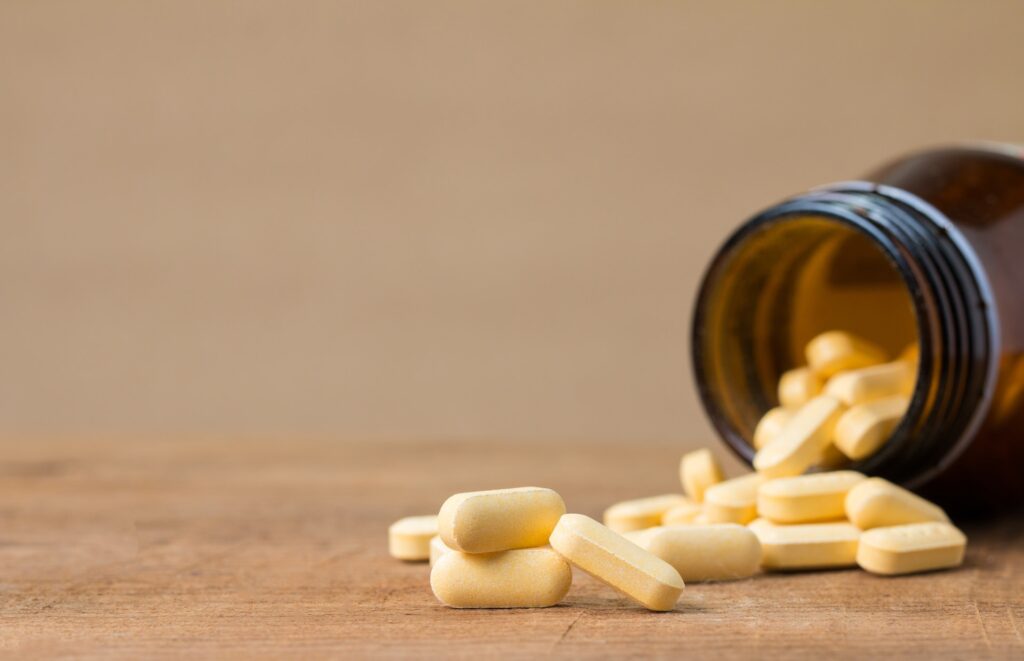Vitamin E is the collective name for a group of fat-soluble compounds with distinctive antioxidant activities. It’s found naturally in some foods, added to others, and available as a dietary supplement.
In general, you should be able to get the amount you need through your diet. But, if you are taking supplements, make sure you’re getting the right kind.
Vitamin E is an Antioxidant
Vitamin E is an antioxidant and essential nutrient that helps the body function properly, especially the immune system. It also helps prevent cardiovascular disease and may protect against certain cancers, improve eye health and reduce the risk of dementia. The best natural sources of Vitamin E include vegetable oils, nuts, and seeds. One ounce of almonds provides 135% of the daily requirement for this fat-soluble vitamin.
Vitamin E can protect against cardiovascular disease by reducing the oxidation of low-density lipoprotein (LDL) cholesterol, inhibiting platelet aggregation, and decreasing the production of prothrombin thromboxane. It is also an important antioxidant in the brain and eyes and may help to prevent cataracts and retinitis pigmentosa by protecting against free radical damage. Some animal studies have found that certain isomers of Vitamin E are protective against cancer.

It Helps Maintain Healthy Heart Function
The nutrient helps to prevent damage caused by oxidation of LDL (“bad”) cholesterol and the formation of blood clots that can lead to heart attacks or stroke. It also promotes a healthy immune system and healthy vision. Vitamin E may also help prevent nonalcoholic fatty liver disease and improve tissue changes related to diabetes.
Several studies have linked higher intakes of Vitamin E with lower rates of heart disease. One study of nearly 90,000 nurses found that people who took Vitamin E supplements had 30% to 40% lower rates of heart disease than those who did not take the vitamins.
A diet rich in foods containing nutrients is the best way to get enough Vitamin E. Avoid processed foods, choose lean meats and poultry, whole grains, nuts and seeds, healthy oils (such as avocado), and unsweetened fruits and vegetables. Vitamin E might increase the risk of bleeding in people taking anticoagulant medications or other drugs that reduce blood clotting such as warfarin (Coumadin(r)). Talk to your doctor before consuming high doses of Vitamin E supplements.
It Helps Prevent Cancer
Vitamin E protects the body from cancer and other conditions by eliminating free radicals, which can damage tissues and organs. It can also prevent eye problems, such as cataracts and age-related macular degeneration, by preventing free radical damage to retinal cells.
A number of epidemiological studies have linked higher intakes of vitamin E with a reduced risk of cancer, but this evidence is inconclusive. The HOPE-TOO Trial and the Physicians’ Health Study II randomized trials, which followed individuals for several years, found that supplemental vitamin E did not significantly reduce cancer rates.
Vitamin E benefits the immune system by helping to form red blood cells and widening blood vessels so that blood can flow more freely. It can also help prevent heart disease by inhibiting the oxidation of LDL cholesterol, which is a major initial step in the development of atherosclerosis. However, it is important to note that consuming high amounts of vitamin E can interfere with blood-clotting activity and increase the risk of hemorrhagic stroke.

It Helps Maintain Healthy Skin
The fat-soluble vitamin E is a powerful antioxidant that helps prevent cell damage and has many other health benefits. It keeps the immune system healthy, promotes eye health, and maintains healthy skin. It also has a role to play in maintaining heart health.
The nutrient can be found naturally in meat products, vegetable oils, and unprocessed cereals. However, the best source is from foods such as nuts and seeds, vegetables (such as leafy greens), and avocado. The recommended daily allowance of vitamin E for adults is 7mg.
People who are deficient in vitamin E can suffer from various health problems including a decrease in the ability to form red blood cells and widening of blood vessels. Those with fat malabsorption disorders (such as Crohn’s disease and cystic fibrosis) may also be at risk.










































Discussion about this post